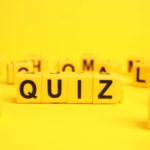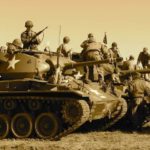The human mind is a fascinating system that operates so intricately. Hence, we now know many borderline personality disorder names, mental illness types, personalities, methodical thinking patterns and so on. Psychology trivia seems like the best way to see how much of the topic you know!
Psychology Trivia
Psychology is the study of the human mind and how it works. It’s how we understand human motivation, brain activity, and the things that make a healthy brain. How many psychology facts do you know? Maybe you didn’t know some of these.
- The Stanford prison experiment happened in a prison setting to prove people conform easily to social roles they are expected to play.
- Ivan Pavlov is a Russian scientist best known for studying conditioned reflexes.
- The human brain can handle up to 1,024 terabytes of information.
Psychology Questions and Answers
We have put together a wide range of questions on modern psychology, experimental psychology, and more in this list of Psychology trivia questions and answers. See how many you can get right!
Click on the blurred area to reveal the answer.
Test it out. Click here to reveal the answer 👉 Awesome! You’re ready
| Questions | Answers |
|---|---|
| The psychological test of human emotions and personality, using inkblots, is formally known as what? | ▶ The Rorschach test |
| Gymnophobia is the fear of what? | ▶ Nudity |
| What do you call a condition where a person puts significant focus on physical symptoms to a level that brings functional problems? | ▶ Somatic Symptom Disorder |
| Which Psychologist is best known for his work around the theory of Behaviorism? | ▶ B F Skinner |
| What mental disorder causes extreme mood swings that include emotional highs and lows? | ▶ Bipolar Disorder |
| When was the American Psychological Association founded? | ▶ July 1892 |
| What are the five levels of Maslow’s hierarchy of needs? | ▶ Physiological, safety, love and belonging, esteem, and self-actualization |
| What personality traits assessment gives you an archetype based on the following personalities: Extraversion vs. Introversion, Sensing vs. Intuition, Thinking vs. Feeling, and Judging vs. Perceiving? | ▶ Myers-Briggs |
| What is another name for the inkblot test? | ▶ Rorschach test |
| What is the series of experiments performed by Albert Bandura to test his social learning theory between 1961 and 1963? | ▶ Bobo Experiment |
| Which famous psychologist in child development formulated the theory of “genetic epistemology”? | ▶ Jean Piaget |
| Which American psychologist is called the Father of American Psychology? | ▶ William James |
| What’s the mental disorder where people have an inflated sense of their own importance and need validation and admiration of others? | ▶ Narcissistic Personality Disorder |
| What hormones does browsing through social media trigger? | ▶ Cortisol and Dopamine |
| What is the fear of clowns called? | ▶ Coulrophobia |
| Who is considered the father of psychoanalysis? | ▶ Sigmund Freud |
| Which psychologist investigated obedience using electric shocks? | ▶ Stanley Milgram |
| Dendrophobia is the fear of what? | ▶ Trees |
| The desire to eat strange things that are non-nutritive is known as what? | ▶ Pica |
| Cynophobia is the fear of what kind of animal? | ▶ Dogs |
| What is the term for the study of nonverbal communication? | ▶ Kinesics |
| Who developed the hierarchy of needs theory? | ▶ Abraham Maslow |
| What is the name of the phenomenon where people conform to a group even when it goes against their beliefs? | ▶ Social conformity |
| Who created the theory of classical conditioning? | ▶ Ivan Pavlov |
| What is the name of the personality test that uses a projective technique? | ▶ Rorschach Inkblot Test |
| Who is known for his experiments on obedience to authority figures? | ▶ Stanley Milgram |
| What is the name of the cognitive bias where people overestimate their own abilities and underestimate the abilities of others? | ▶ Dunning-Kruger Effect |
| Who developed the social identity theory? | ▶ Henri Tajfel |
| What is the term for the unconscious blocking of unpleasant memories? | ▶ Repression |
| Who is known for his research on learned helplessness? | ▶ Martin Seligman |
| What is the term for the theory that suggests people are motivated by a drive to maintain consistency in their beliefs and behaviors? | ▶ Cognitive Dissonance Theory |
| Who is known for the concept of the self-actualization? | ▶ Carl Rogers |
| What is the name of the psychological disorder where a person has two or more distinct identities or personalities? | ▶ Dissociative Identity Disorder |
| Who is known for the cognitive development theory? | ▶ Jean Piaget |
| What is the term for the concept that people are more likely to remember the first and last items in a series? | ▶ Serial position effect |
| Who developed the hierarchy of cognitive development theory? | ▶ Lawrence Kohlberg |
| What is the term for the cognitive bias where people give more weight to recent events than earlier ones? | ▶ Recency effect |
| Who is known for his work on the principles of operant conditioning? | ▶ B.F. Skinner |
| What is the term for the psychological phenomenon where people are more likely to conform when they think they are being watched? | ▶ Social facilitation |
| What is the term for a person’s unique combination of behavioral, emotional, and cognitive patterns? | ▶ Personality |
| What is the term for an individual’s conscious understanding of their own thoughts and feelings? | ▶ Self-awareness |
| What is the name of the first woman to receive a PhD in psychology? | ▶ Margaret Floy Washburn |
| Which famous psychologist is known for his experiment on obedience, involving participants giving electric shocks to others? | ▶ Stanley Milgram |
| What is the term for a psychological disorder characterized by delusions and hallucinations? | ▶ Schizophrenia |
| What is the term for a personality trait characterized by high levels of anxiety and tension? | ▶ Neuroticism |
| What is the name of the psychological test that measures personality traits, such as openness, conscientiousness, extraversion, agreeableness, and neuroticism? | ▶ Big Five Personality Test |
| Who is known for the Bobo doll experiment, which demonstrated the impact of observation and imitation on behavior? | ▶ Albert Bandura |
| What is the term for a psychological disorder characterized by recurring, unwanted thoughts or impulses? | ▶ Obsessive-compulsive disorder |
| Who developed the stages of cognitive development theory, which suggests that children develop their thinking abilities in stages? | ▶ Jean Piaget |
| What is the term for a type of therapy that focuses on changing negative or maladaptive thoughts and behaviors? | ▶ Cognitive-behavioral therapy |
| Who is known for his theory of operant conditioning, which describes how behavior is shaped by its consequences? | ▶ B.F. Skinner |
| What is the name of the famous experiment in which participants were randomly assigned to be guards or prisoners in a simulated prison, revealing the power of social roles? | ▶ Stanford Prison Experiment |
| Who is known for the stages of grief model, which includes denial, anger, bargaining, depression, and acceptance? | ▶ Elisabeth Kubler-Ross |
| What is the term for the mental process of adapting one’s beliefs or actions in response to new information or experiences? | ▶ Learning |
| Who is known for the theory of multiple intelligences, which suggests that there are different types of intelligence beyond IQ? | ▶ Howard Gardner |
| What is the term for a type of therapy that involves reliving and processing traumatic memories in order to reduce their impact? | ▶ Exposure therapy |
| What is the name of the famous experiment where participants delivered electric shocks to a learner in another room? | ▶ Milgram Experiment |
| Which psychologist is known for his research on classical conditioning with dogs? | ▶ Ivan Pavlov |
| What is the name of the psychological theory that emphasizes the importance of unconscious motives and conflicts? | ▶ Psychoanalytic theory |
| Which famous psychologist was known for his research on social conformity? | ▶ Solomon Asch |
| What is the name of the psychological test that measures intelligence? | ▶ IQ test |
| Who is known for the “Bobo doll” experiment on aggression in children? | ▶ Albert Bandura |
| What is the name of the psychological theory that emphasizes free will and personal growth? | ▶ Humanistic theory |
| Which famous psychologist is known for his theory on cognitive development in children? | ▶ Jean Piaget |
| Who is known for the “little Albert” experiment on fear conditioning? | ▶ John B. Watson |
| What is the name of the psychological disorder characterized by alternating episodes of mania and depression? | ▶ Bipolar disorder |
| What is the name of the psychological theory that emphasizes how people perceive, think, and solve problems? | ▶ Cognitive theory |
| Who is known for his work on social identity and intergroup relations? | ▶ Henri Tajfel |
| What is the name of the psychological disorder characterized by intense fear of being scrutinized or evaluated by others? | ▶ Social anxiety disorder |
| Who is known for his research on the “fight or flight” response to stress? | ▶ Walter Cannon |
| What is the name of the psychological theory that emphasizes the role of social factors in behavior? | ▶ Social learning theory |
| Who is known for his work on the cognitive development of infants and children? | ▶ Lev Vygotsky |
| What is the name of the psychological disorder characterized by excessive and persistent worry and anxiety? | ▶ Generalized anxiety disorder |
| Who is known for developing the theory of cognitive development in children? | ▶ Jean Piaget |
| Who is known for developing the concept of the collective unconscious? | ▶ Carl Jung |
| Which famous psychologist is known for the Bobo doll experiment on aggression in children? | ▶ Albert Bandura |
| Who is known for developing the concept of flow in psychology? | ▶ Mihaly Csikszentmihalyi |
| Who developed the concept of social learning theory? | ▶ Albert Bandura |
| Who is known for developing the theory of emotional intelligence? | ▶ Daniel Goleman |
| Who developed the concept of self-actualization? | ▶ Abraham Maslow |
| Who is known for developing the concept of operant conditioning? | ▶ B.F. Skinner |
| Who is known for developing the concept of positive psychology? | ▶ Martin Seligman |
| Who developed the concept of the bystander effect? | ▶ Bibb Latane and John Darley |
| Who is known for developing the concept of cognitive dissonance? | ▶ Leon Festinger |
| Who developed the concept of the fundamental attribution error? | ▶ Edward E. Jones and Victor Harris |
| Who is known for developing the concept of self-verification? | ▶ William Swann |
| What is the study of non-verbal communication called? | ▶ Kinesics |
| Who developed the concept of operant conditioning? | ▶ B.F. Skinner |
| What is the name of the famous experiment where participants were asked to administer electric shocks to other participants? | ▶ Milgram experiment |
| Who is known for developing the theory of cognitive development in children? | ▶ Jean Piaget |
| What is the term for a pattern of thoughts, feelings, or behaviors that persist over time? | ▶ Personality trait |
| Who developed the concept of archetypes? | ▶ Carl Jung |
| What is the study of how the brain influences behavior called? | ▶ Neuropsychology |
| Who is known for developing the social cognitive theory? | ▶ Albert Bandura |
| What is the name of the test that measures intelligence quotient (IQ)? | ▶ Stanford-Binet test |
| Who is known for developing the concept of the collective unconscious? | ▶ Carl Jung |
| What is the term for the tendency to seek out information that confirms one’s pre-existing beliefs? | ▶ Confirmation bias |
About the Author
Tim majored in Humanities with a bachelor in English and Theatre at New York State University. He lectured on entertainment business studies for three years at Plymouth College.
Tim has been a trivia host in his current hometown of Pittsburgh for the past two years. He enjoys hanging out with people who love trivia just as much as he does.
His friends call him the Question Master.













